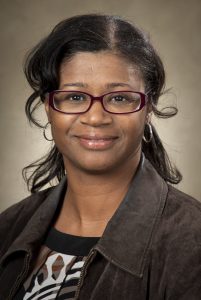
TUSCALOOSA, Ala. — The University of Alabama is one of seven universities recently chosen by the National Science Foundation to launch the Institute for African-American Mentoring in Computing Sciences, or iAAMCS.
UA partners with Clemson University, Auburn University, Carnegie Mellon University, Rice University, the University of Wisconsin-Madison and Winston-Salem State University.
With the iAAMCS program, NSF seeks to increase participation of black graduate-level students in computer science.
Dr. Monica Anderson, associate professor of computer science at the University, is a part of the program and has led several initiatives on campus for mentoring underrepresented minority students.
“Future U.S. competitiveness relies upon the ability to leverage the talents of a diverse population,” Anderson said. “Although jobs in computer science related fields will continue to grow over the next 10 years, there are projected shortfalls in computer scientists at all levels of education.”
While the ethnic breakdown of computer science undergraduate degrees is consistent with the population as a whole, the number of African-American students pursuing advanced degrees in computing is alarmingly low, she said. Nationwide, black students account for 1.3 percent of graduates of computer science master’s and doctorate programs and 1.2 percent of tenure-track faculty at doctoral-granting institutions.
To boost these numbers, iAAMCS will offer extensive approaches for reaching black computer-science students, including research and professional training, career development, conferences, writing workshops, targeted presentations and technical webinars. In addition, participating students will be paired with mentors in computing.
iAAMCS operates under the premise that there exists a “leak in the pipe,” meaning many black undergraduate students simply do not return for graduate studies. At UA in fall 2012, black students accounted for 16 percent of computer science undergraduates, but only 5 percent of computer science graduate students.
The program seeks to guide those undergraduate students toward a path to advanced degrees. Anderson described mentorship of undergraduate students as the lead strategy for the program since the pool of those students is sufficient.
“The iAAMCS grant focuses on mentoring the next generation of thought leaders in computer science,” Anderson said. “The iAAMCS grant recognizes UA’s major contributions in mentoring African-American computer science students at all levels from middle school and high school through masters and Ph.D.’s.”
UA is second in enrollment of black students across all disciplines among 50 flagship universities nationwide, and Anderson said UA is also a leading producer of black students with doctorate degrees in computer science. She is optimistic about the potential she sees for iAAMCS to be successful at the Capstone.
iAAMCS is directed by Juan Gilbert, chairman of the Human-Centered Computing Division at Clemson, and Shaundra Daily, assistant professor in Clemson’s School of Computing. The NSF awarded a $5 million grant for the iAAMCS program, with Clemson University serving as lead for the project.
In 1837, The University of Alabama became one of the first five universities in the nation to offer engineering classes. Today, UA’s fully accredited College of Engineering has more than 3,900 students and more than 110 faculty. In the last eight years, students in the College have been named USA Today All-USA College Academic Team members, Goldwater, Hollings, Mitchell, Portz and Truman scholars.
Contact
Adam Jones, engineering public relations, 205/348-6444, acjones12@eng.ua.edu; Judah Martin, engineering student writer, jmmartin5@crimson.ua.edu
Source
Dr. Monica Anderson, associate professor of computer science, 205/348-1667, anderson@cs.ua.edu